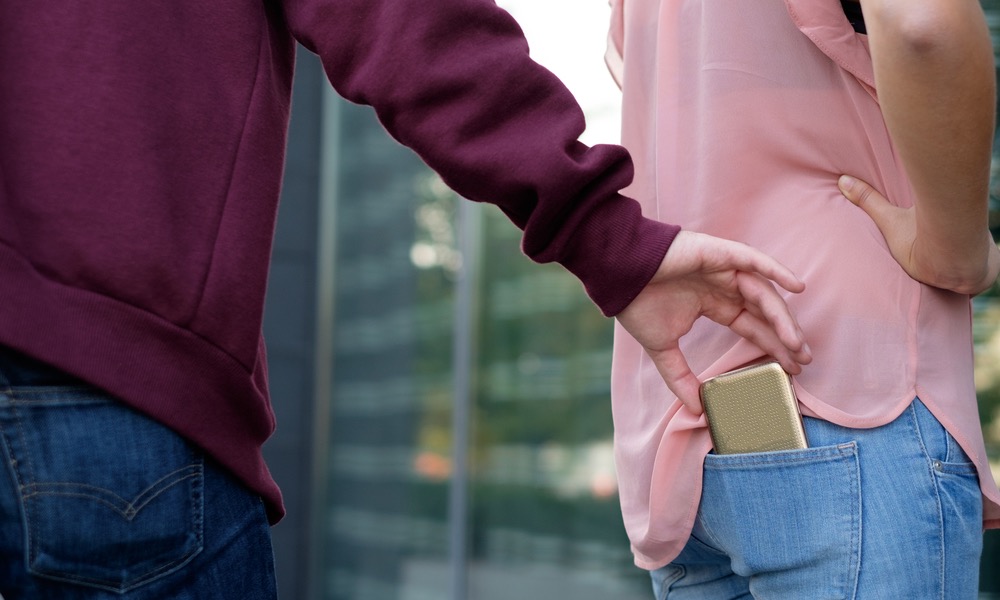Buyer Beware – You Could Be Purchasing a Stolen iPhone Right Now
 Credit: Tommaso79
Credit: Tommaso79
Toggle Dark Mode
In the midst of civil unrest throughout the United States right now, opportunistic thieves have been using the cover of peaceful demonstrations as an excuse to engage in blatant looting and pillaging, often making off with thousands of dollars in merchandise from various retailers, including Apple Stores.
Although Apple has taken steps to prevent this by closing many of its stores and locking up its front-of-house demo units, many looters have already gotten away with hundreds of iPhones that they’ll no doubt be looking for ways to offload on unsuspecting buyers in order to make some quick cash.
There’s only one problem, however: these iPhones aren’t going to work. Not now, not ever.
Looters Being Tracked
Some looters already found a nasty surprise earlier this week when they discovered the iPhones that they had stolen were not only locked down, but actually lit up with a message that they were being tracked and local authorities had been alerted to their location.
While we have yet to hear any reports of police actually arresting any thieves as a result of this, it’s also fair to say that law enforcement has bigger problems on its hands right now. Either way, though, the iPhones in question have all been rendered useless, thanks to Apple’s Activation Lock features.
However, if you were to find yourself purchasing one of these iPhones, there’s a good chance that law enforcement will track it back to you, whether you were involved in the looting or not. Even if you can prove you weren’t the thief, in many jurisdictions purchasing stolen goods is a crime in and of itself.
Stolen Bricks
It’s been known for a while that the iPhone units on display in Apple Stores run special versions of iOS that not only make them appropriate for demo purposes, but are also designed to render them useless once they leave the confines of the store. It’s believed this is done by tying them to Apple’s store Wi-Fi network, and although Apple has never explained exactly how it works, we’ve seen reports of the results — grab an iPhone from an Apple Store display, and it will go into lockdown mode as soon as you’re a few hundred feet away from the store.
However, even if the looters managed to get into Apple’s back room and steal iPhone inventory for sale, this won’t get them any further, since Apple also doesn’t activate an iPhone until it’s actually purchased by a customer. Apple’s point-of-sale system takes care of this automatically, so the process is transparent both to the Apple Store rep and the customer, but until an iPhone is run through the point-of-sale system, it’s effectively useless.
Buying a Stolen iPhone
The problem, however, is that even if the thieves realize this, that doesn’t preclude them from trying to pass these iPhones off to an unsuspecting buyer to make some quick cash. This is especially easy to do if they’ve stolen iPhones that are still in their original packaging, since a potential buyer will have less reason to believe that the iPhone has been stolen.
So even if you follow the obvious good advice of avoiding used iPhones from questionable sources — and especially if they come without original packaging — you could still be duped into purchasing a stolen iPhone that otherwise seems brand new, and clever thieves will often fence these through more seemingly legitimate sources, like small electronics shops or mall kiosks.
Consumers in Australia found themselves in a similar position last year when thieves made off with $300,000 worth of iPhones in a smash-and-grab robbery at an Apple Store in Perth. Local police put out warnings to the public that purchasing such iPhones would be pointless, as they’ve all been permanently disabled by Apple.
With many looted iPhones now out in circulation in the U.S., the same risk now applies here, and as a result you should be very wary of any deal on an iPhone that seems too good to be true, as it most likely is. In the very least, unless you’re buying an iPhone from a reputable source like your carrier, Apple, or a big-box electronics store, it’s a good idea to insist on turning it on and making sure it can be properly activated before handing over any money, but ultimately you’re probably best just to avoid second-tier iPhone sales entirely for now.






